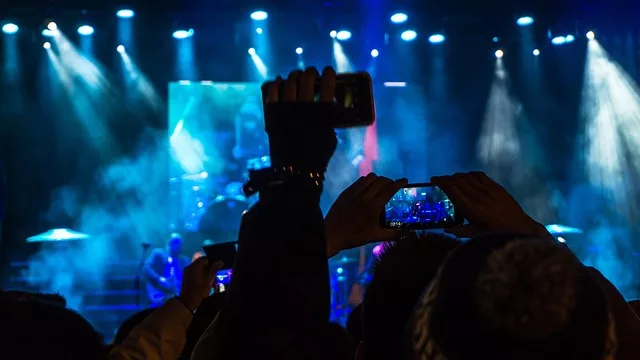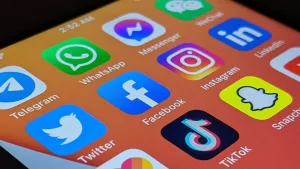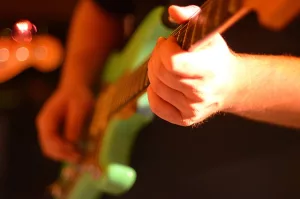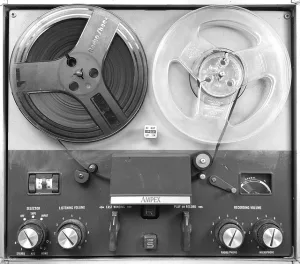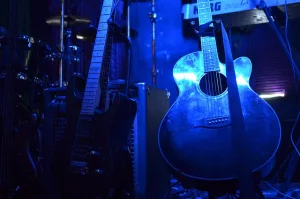DISCLAIMER: Parlor City Sound earns a commission (at no cost to you) if you click a link to Amazon and buy something while visiting this page. This is only applicable to Amazon links—we don't earn a sales commission from anyone else. Read our advertising disclosure & FAQ to learn more about our strict policies on affiliate marketing.
We often think of music as a young person’s game. You don’t often see “old musicians” getting famous later in life. But does that mean you shouldn’t try? Is there a certain cut-off age where a late starter musician should hang up their mic or guitar and call it a day? An age when a musician who started late should abandon their dreams of music stardom and go become a banker or a dentist or whatever you were supposed to be ambitious about?
Here’s the short answer: yes, a musician who started late can still “make it” in the music industry. It depends more on how you define success, and whether or not you acknowledge that age can present some barriers. And it helps if we blow away some of the fog-generating myths that lead us to believe you have to be a teenager with connections to get big or famous as a musician.
Do only the young dudes carry the news?
Concerns about age are felt by many a late starter musician, as well as those who started young but didn’t “make it”. There will be people in their twenties who think of themselves as “old musicians”. But rather than wondering if we’re too old to make music, we should be asking a question on an entirely separate set of rails. Why do we all think there’s some mystical age limit on musical success?
A big portion of the issue stems from the seemingly mystical batch of “top 40” musicians who are almost always teenagers. But let’s think about that for a moment. Why are top 40 artists usually young? It’s because they’re signed to mainstream AAA record labels who invest heavily in marketing these young artists to teenagers, a key demographic that buys albums and t-shirts and goes to concerts. And record labels are, first and foremost, a business. They expect a sizable return on their investment. These marketing juggernauts will make educated gambles on artists and put them in front of as many people as possible to turn a profit.
There have been quite a few “old musicians” who’ve broken into top 40 success, too. Debbie Harry, 2 Chainz, Robin Thicke, and Pharrell Williams all got their big break in their 20’s, 30’s, or even their 40’s. Chuck Berry was 29 years old when “Maybelline” became a smash hit song, catapulting his career and the genre of rock and roll along with it. So is it possible to market late starter musicians to teenagers? Yes, definitely. The bigger question is whether or not you want your music to attract teenage fans to begin with.
Like anyone, a late starter musician needs to find the right audience
Saying “old musicians” can’t find success in music is like saying someone can’t open a burger joint because it would never compete nationally with McDonald’s or Burger King. You don’t need to be among the biggest recording artists in the world to have “made it”. You just need to find your audience, and help your audience find you.
Simply put, your music is a product. If you can identify a product’s target audience, successfully market your product to that audience, and have that audience want more of the product, you find commercial success. And generally speaking, these same rules apply to the music world, too. It isn’t a question of age, but how effectively you market your music to those people who’d appreciate it most.
Age does present a few barriers, of course. As we get older, our life experiences tend to impact our music, both lyrically and otherwise. Scheduling practices and gigs can be difficult when our bandmates have day jobs and families at home. Oh, and let’s not forget those random aches and pains our bodies toss at us in our thirties that never seem to go away. But none of that is prohibitive. It’s more about leaping over hurdles than slamming into roadblocks.
Related: The music marketing funnel: how to find ‘band superfans’
How should a late starter musician define success?
The dream of becoming a millionaire musician, globetrotting in a private jet and vacationing in Monaco with a movie star as your significant other? That lifestyle is exclusive to only a tiny handful of top-selling artists. And while there’s no harm in daydreaming, it does make sense to reel in a healthy dose of reality when it comes to how a musician—a late starter musician, a teenager, any musician—should define success.
Those big top 40 artists? Contrary to popular belief, they’re not as wealthy as we often think they are. Those big AAA record labels don’t just spend money out of pocket. Instead, they’re passing on those expenses to the artists themselves by way of advances on their royalties. The artist doesn’t get paid (or gets paid very little) until the full debt has been recuperated by the label. Recording costs, music marketing, touring expenses … it adds up fast. And if you do manage to repay those advances, you’re left earning a relatively small percentage of the revenue going forward.
Find an audience that digs your music. Set a goal to earn enough money to quit your day job and earn a living doing what you love. Even that is exceptionally challenging. But there’s no reason age should prohibit you, even as a musician who started late. It doesn’t matter if you’re 18 or 81. A lifelong instrumentalist or a late starter musician. If your music is good enough and you can market your music effectively enough, there’s an audience out there for you. And that’s true for young and old musicians alike.
Related: Do bands make money? How your band can earn revenue

